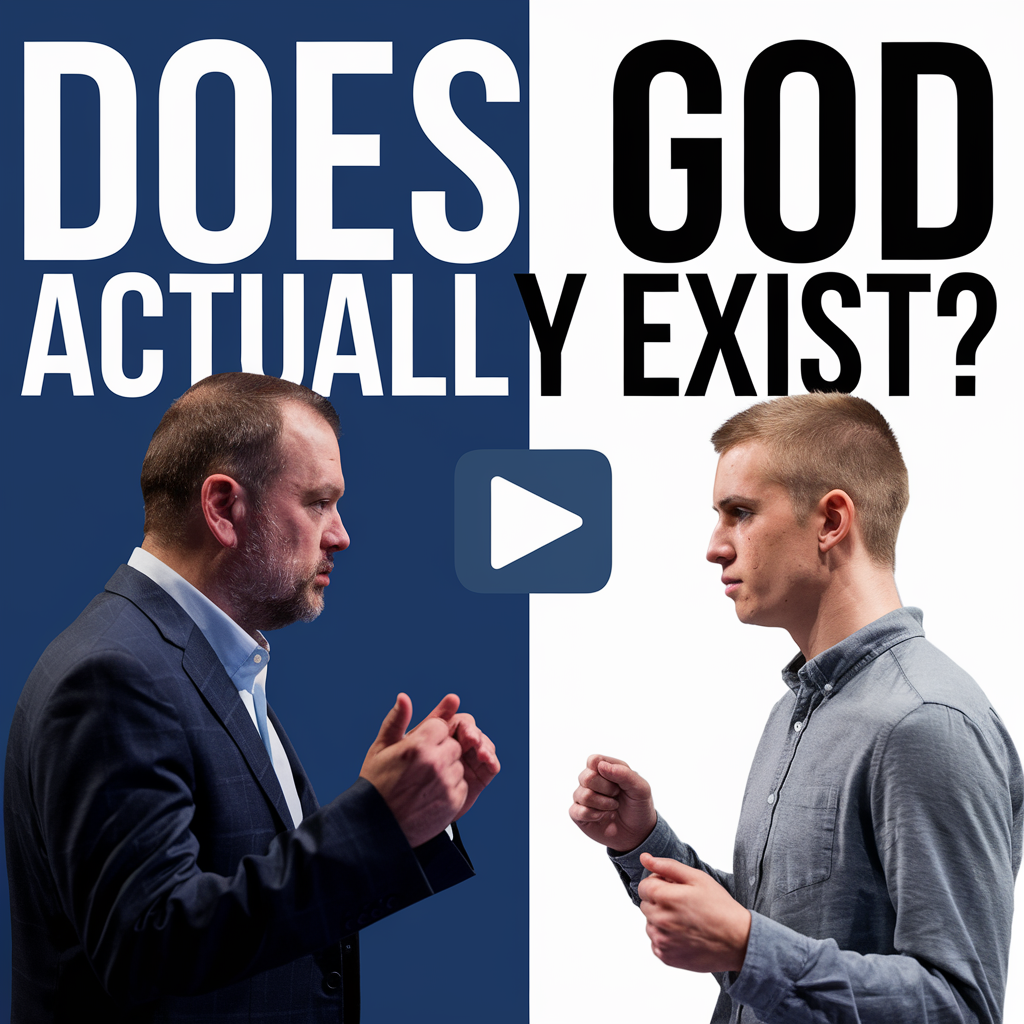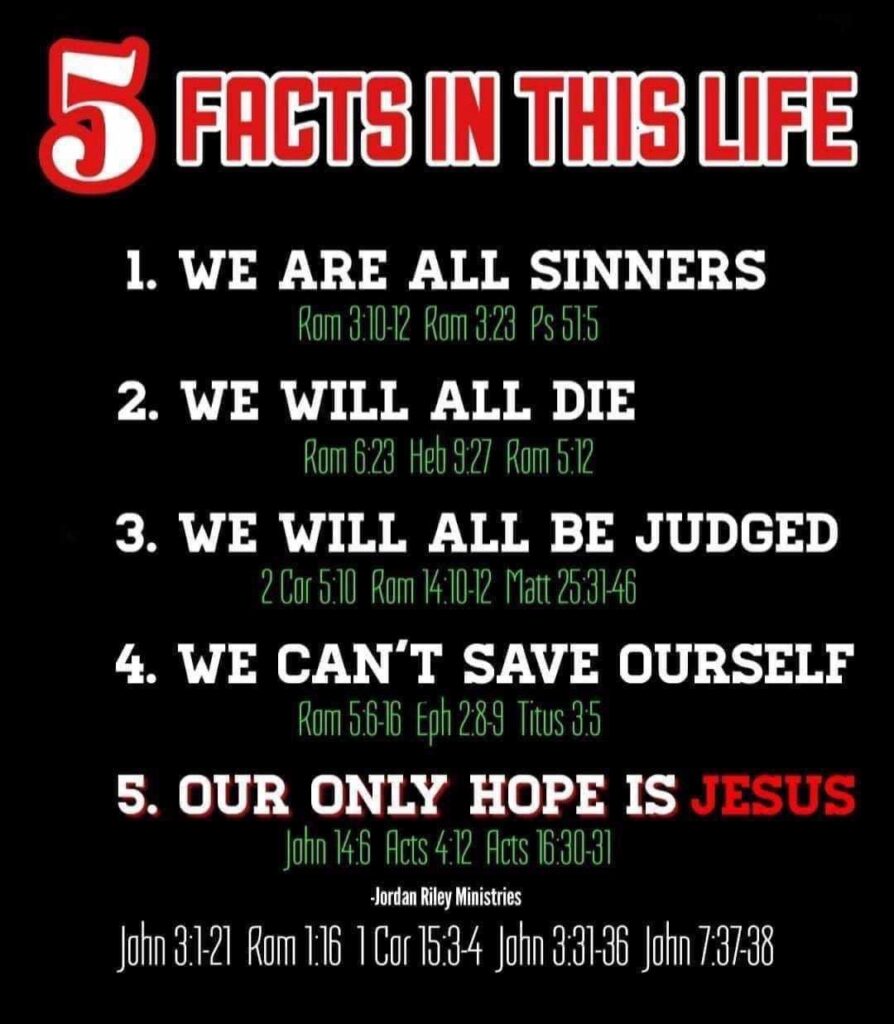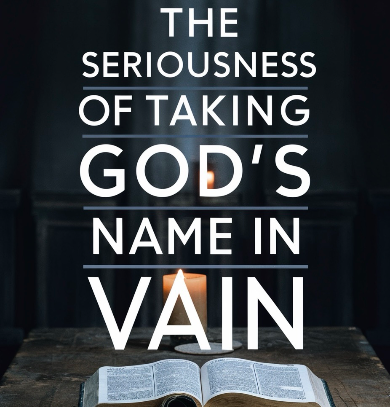
Why the Question of God’s Existence Matters
The question, “Does God actually exist?” is one that resonates deeply with people from all walks of life. Whether you’re a believer, a skeptic, or somewhere in between, the existence of God is a topic that touches on our most fundamental beliefs about the world and our place in it. For me, as a Christian who follows the teachings of the Church of Christ and holds closely to the NKJV Bible, this question is not just philosophical; it’s deeply personal.

From my own journey of faith, I’ve come to realize that the existence of God is foundational to everything else we believe and practice as Christians. It’s the bedrock of our faith, shaping our understanding of creation, morality, purpose, and destiny. But in a world where atheism and skepticism are increasingly common, it’s important to revisit this question and explore the evidence for God’s existence—both from the Bible and the world around us.
In this article, I want to share with you why I firmly believe that God does actually exist. We’ll look at what the Bible says about God’s existence, examine some scientific arguments that point to a Creator, and even hear from those who once doubted but now believe. My hope is that whether you’re questioning, searching, or simply seeking to strengthen your faith, you’ll find this exploration both informative and inspiring.

What Does the Bible Say About God’s Existence?
When asking, “Does God actually exist?” the first place I turn to is the Bible. For me, the Bible isn’t just a book of ancient texts; it’s the living word of God, offering insight and wisdom that transcends time. The Bible, especially the NKJV, repeatedly affirms the existence of God, presenting Him as the Creator, Sustainer, and Sovereign over all things.
Trusting in God’s plan, even when it seems impossible, is something we must do as a follower of Christ.

The Bible’s Declaration of God’s Existence
The Bible doesn’t just suggest that God exists; it boldly declares it from the very first verse. Genesis 1:1 states, “In the beginning, God created the heavens and the earth.” This verse isn’t just a starting point for the biblical narrative—it’s a powerful affirmation that God is the origin of everything we see and experience. For me, this foundational truth underpins everything else that follows in Scripture.
Another powerful passage is Romans 1:20, which says, “For since the creation of the world His invisible attributes are clearly seen, being understood by the things that are made, even His eternal power and Godhead, so that they are without excuse.” This verse speaks to the natural revelation of God—how the very existence and complexity of the universe point to a Creator. The intricacy of the world around us, from the vastness of space to the smallest details of life, all serve as evidence that God actually exists.
For those seeking a reliable version of the Bible to study these truths, I highly recommend the NKJV, Thinline Bible Youth Edition. It’s a trustworthy and accessible translation that can help deepen your understanding of God’s word.

Trusting God Through His Word
One of the most significant ways I’ve come to know and trust in God’s existence is through the promises and teachings found in Scripture. The Bible isn’t just a collection of ancient stories; it’s a guide for living, offering hope and direction for every aspect of life. Matthew 6:19-34, for example, teaches us about trusting God with our future, reassuring us that He is aware of our needs and cares for us deeply.
These verses have been a source of comfort and strength for me, especially during times of uncertainty. They remind us that we are more than just physical beings—we are spiritual creatures, created by God and cared for by Him in every moment of our lives. If you’re struggling with worry or fear about the future, I encourage you to explore this passage further in the article Worried About the Future? Trusting God Through Matthew 6:19-34.
The Bible’s consistent affirmation of God’s existence, coupled with its practical guidance for living, has been instrumental in my own faith journey. It provides not just answers to the question of whether God exists, but also a framework for understanding how to live in relationship with Him. What do you think Jesus would actually say to an atheist?

Can Science Point to the Existence of God?
As a Christian, I believe that science and faith are not at odds, but rather two ways of understanding the truth. When I consider the question, “Does God actually exist?” I find that scientific evidence, particularly the complexity and fine-tuning of the universe, strongly points to a Creator. The more I learn about the intricacies of the natural world, the more I am convinced that such complexity is not the result of random chance, but of deliberate design.
The Complexity of the Universe
One of the most compelling arguments for the existence of God is the sheer complexity of the universe. From the vastness of galaxies to the precise laws of physics that govern everything, the universe operates with a level of order and precision that suggests an intelligent Designer.
For example, consider the complexity of DNA, the building block of life. DNA carries the genetic information that dictates everything from our physical appearance to how our bodies function. The information contained in DNA is incredibly detailed and specific, much like a complex code. To me, this complexity points directly to the existence of a Creator who designed life with intention and purpose.
Psalm 19:1 beautifully captures this idea: “The heavens declare the glory of God; and the firmament shows His handiwork.” When I look at the stars or even study the intricacies of a single cell, I see evidence of God’s handiwork everywhere. It’s a reminder that the natural world isn’t just a random occurrence, but a reflection of the Creator who brought it into existence.

The Fine-Tuning Argument for God’s Existence
The fine-tuning argument is another powerful example of how science points to God’s existence. This argument suggests that the conditions necessary for life to exist are so specific and finely tuned that the odds of them occurring by chance are astronomically low. For instance, if certain physical constants—such as the strength of gravity or the charge of an electron—were even slightly different, life as we know it wouldn’t be possible.
To me, this fine-tuning indicates that the universe was designed with life in mind. It’s as if the universe was calibrated by a master engineer, setting the stage for life to flourish. This perspective aligns with what we find in Scripture: a God who created the world with care and precision.
For those interested in exploring the Bible’s account of creation and how it aligns with these scientific insights, I recommend embarking on a Chronological Bible Journey. This journey through Scripture can help you see God’s plan unfold from the beginning of time, deepening your understanding of His work in creation.
In my experience, the more we explore the natural world, the more we see that science and faith are not in conflict. Instead, science reveals the complexity and order that point to a Creator who designed the universe with purpose. This realization strengthens my faith and reaffirms my belief that God actually exists.

What Role Does Personal Experience Play in Belief?
While the Bible and science provide compelling evidence that God actually exists, personal experience also plays a significant role in shaping one’s belief in God. Throughout my journey of faith, and in the stories of many others, it’s often these personal encounters with the divine that solidify our understanding and conviction in God’s existence. For many, it’s the transformation in their own lives or the testimonies of others that serves as the most powerful evidence of God’s reality.
Testimonies from Former Atheists
I’ve met and heard from several Christians who didn’t always believe in God. Many of them started as atheists or skeptics, questioning whether God actually exists or dismissing the idea altogether. Yet, something changed their hearts and minds—a powerful encounter with God that they couldn’t explain away or ignore.
Take, for example, the story of a friend who grew up in a secular home with no belief in God. He was a staunch atheist, convinced that science had all the answers and that faith was just a crutch. But one day, in the midst of personal turmoil, he found himself praying—something he’d never done before. In that moment, he felt an overwhelming sense of peace and presence that he couldn’t attribute to anything else. It was the beginning of a journey that led him to explore Christianity, study the Bible, and eventually come to believe in God.
Another testimony comes from a woman I know who experienced a miraculous healing after years of battling a chronic illness. She had tried every medical treatment available, but nothing worked. Desperate and out of options, she turned to prayer. Not long after, she experienced a dramatic improvement in her health, which doctors couldn’t explain. She knew, deep in her heart, that this was the hand of God at work. This experience not only led her to believe in God but also to commit her life to Christ.
These stories are not isolated incidents. Many people who were once atheists have encountered God in ways that completely changed their lives. For them, personal experience became the undeniable proof that God actually exists.

The Power of a Transformed Life
One of the most compelling pieces of evidence for God’s existence is the transformation that takes place in the lives of those who come to know Him. The Bible speaks to this transformation in 2 Corinthians 5:17: “Therefore, if anyone is in Christ, he is a new creation; old things have passed away; behold, all things have become new.” This verse resonates deeply with me because I’ve seen it happen in my own life and in the lives of others.
Before becoming a Christian, I struggled with feelings of emptiness and lack of purpose. But after giving my life to Christ, I experienced a profound change. My priorities shifted, my outlook on life became more hopeful, and I found a sense of peace and fulfillment that I had never known before. This transformation wasn’t just a change in behavior—it was a complete renewal of my heart and mind.
The power of a transformed life is a testament to God’s existence and His active presence in the world today. It’s a reminder that faith isn’t just about intellectual assent; it’s about a relationship with a living God who changes us from the inside out.
For those who are curious about what it means to start this journey with God, I recommend reading the How to Be a Christian: Starter Guide. It’s a great resource for anyone seeking to understand what it means to follow Christ and experience the transformative power of faith.

How Do We Respond to Doubts About God’s Existence?
Doubt is something that many people face at different points in their spiritual journey. Even as Christians, we might find ourselves wrestling with the question, “Does God actually exist?” Especially in a world filled with skepticism, where atheistic viewpoints are prevalent, it’s important to know how to respond to these doubts—both our own and those of others. Through faith, study, and a supportive community, we can find answers that strengthen our belief in God’s existence.
Addressing Common Atheist Arguments
One of the most common arguments from atheists is the problem of evil and suffering. They ask, “If God exists and is good, why is there so much pain in the world?” This is a tough question, and it’s one that many Christians have grappled with. From my perspective, the presence of suffering doesn’t negate God’s existence but rather points to the reality of a broken world in need of redemption.
The Bible addresses this issue in several places, most notably in the book of Job, where Job experiences immense suffering and questions God’s justice. Yet, through his journey, Job comes to a deeper understanding of God’s sovereignty and wisdom. Romans 8:28 also reassures us that “all things work together for good to those who love God, to those who are the called according to His purpose.” This verse doesn’t claim that everything that happens is good, but that God can bring good out of even the darkest situations.
Another common argument is the lack of physical evidence for God. Atheists often say, “I’ll believe in God when I see proof.” But faith, as described in Hebrews 11:1, is “the substance of things hoped for, the evidence of things not seen.” Faith requires us to trust in God’s presence and work, even when we can’t physically see Him. Additionally, the existence of moral laws, the fine-tuning of the universe, and the complexity of life all serve as indirect evidence of a Creator who designed the world with purpose.

For those who are struggling with doubts or seeking answers to these tough questions, it’s important to approach these discussions with humility and an open heart. Engage in conversations that are loving and respectful, understanding that everyone is on their own journey. Encouraging others to seek truth with sincerity can open doors for God to work in their hearts.
Strengthening Faith Through Study and Community
When facing doubts, one of the most effective ways to strengthen faith is through diligent study of the Bible and involvement in a Christian community. The Bible is filled with wisdom, comfort, and guidance that can help us navigate our doubts and deepen our understanding of God.
One resource that has been particularly helpful for me is the 24/7 Bible Hotline. It’s a place where you can get spiritual support and answers to your questions whenever you need them. Whether you’re in the middle of a crisis or just need some guidance, having access to knowledgeable Christians who can offer prayer and biblical counsel can make a big difference.
Another way to strengthen your faith is to dive deeper into God’s word. The article Thou Shalt Not Take the Name of the Lord Thy God in Vain is a great example of how studying specific scriptures can help us better understand the gravity and reverence of our relationship with God. Engaging in such studies, whether alone or with a group, fosters a deeper connection with God and builds a foundation that can withstand doubts.
Faith isn’t the absence of doubt—it’s the decision to trust God even when we have questions. By surrounding ourselves with a supportive community and immersing ourselves in Scripture, we can find the answers we need to overcome our doubts and reaffirm our belief that God actually exists.

Does God Actually Exist? Yes, and Here’s Why
As I reflect on the question, “Does God actually exist?” I am continually reminded of the overwhelming evidence that points to His existence. From the clear declarations of Scripture to the intricate design of the universe, everything around us speaks to the reality of a Creator who is deeply involved in His creation. Moreover, the personal experiences and testimonies of those whose lives have been transformed by God provide compelling proof that He is not only real but active and present in our lives today.
The Bible, particularly the NKJV, offers us a solid foundation for understanding God’s existence. It begins with the powerful statement, “In the beginning, God created the heavens and the earth” (Genesis 1:1), and continues to reveal God’s character, His love for humanity, and His desire for us to know Him. The fine-tuning of the universe and the complexity of life further affirm what the Bible tells us—that we are not here by accident, but by divine design.
Personal stories of transformation, like those of former atheists who encountered God in profound ways, add another layer of evidence that God is real. These testimonies show that God is not distant or detached, but rather, He is a loving Father who reaches out to us, changes us, and gives our lives meaning and purpose.
If you’re still exploring the question of God’s existence, I encourage you to take the next step. Dive deeper into the Bible, engage with a Christian community, and open your heart to the possibility that God is reaching out to you. For those new to the faith or looking to strengthen their understanding, I highly recommend starting a Chronological Bible Journey or exploring the How to Be a Christian: Starter Guide.
In the end, faith in God is not just about intellectual arguments or scientific evidence—though these are important. It’s also about a personal relationship with the One who created you, loves you, and desires to walk with you every step of the way. I firmly believe that when you seek Him with an open heart, you will find the answer to the question, “Does God actually exist?” And that answer is a resounding “Yes.”

Addressing Common Atheist Arguments That the Bible Easily Disproves
When discussing the existence of God, atheists often present arguments that they believe undermine the credibility of the Bible and Christian faith. However, many of these arguments can be addressed directly through Scripture, revealing the consistency and truth of God’s word. Here are a few common claims made by atheists, along with how the Bible provides clear and compelling answers.
“The Bible is Just a Book of Myths and Legends.”
One of the most frequent claims from atheists is that the Bible is nothing more than a collection of myths and legends, similar to the stories of ancient cultures. However, the Bible stands apart in its historical accuracy, prophetic fulfillment, and transformative power.
Biblical Response:
- 2 Peter 1:16 states, “For we did not follow cunningly devised fables when we made known to you the power and coming of our Lord Jesus Christ, but were eyewitnesses of His majesty.” This verse directly counters the idea that the Bible is a collection of made-up stories. The apostles and writers of the New Testament witnessed the events they recorded, providing firsthand testimony.
- Additionally, archaeological discoveries continue to confirm the historical accuracy of the Bible, such as the Dead Sea Scrolls, which provide ancient copies of biblical texts that align with what we have today.
“There Is No Evidence for Miracles or Divine Intervention.”
Atheists often argue that there’s no evidence for miracles or divine intervention, claiming that everything must have a natural explanation. However, the Bible records numerous miracles that were witnessed by many people, providing strong evidence of God’s power.
Biblical Response:
- John 21:25 says, “And there are also many other things that Jesus did, which if they were written one by one, I suppose that even the world itself could not contain the books that would be written.” The Bible documents miracles, such as the resurrection of Jesus, the healing of the sick, and the parting of the Red Sea—events that were witnessed by hundreds, if not thousands, of people.
- The Bible’s accounts of miracles are not just isolated stories; they are central to the narrative of God’s interaction with humanity. These miracles were performed openly, witnessed by many, and recorded for future generations.

“The Concept of God Is Just a Crutch for the Weak.”
Some atheists claim that belief in God is merely a psychological crutch for those who cannot face the realities of life. However, the Bible presents faith in God not as a crutch, but as a source of true strength and wisdom.
Biblical Response:
- 2 Corinthians 12:9-10 explains, “And He said to me, ‘My grace is sufficient for you, for My strength is made perfect in weakness.’ Therefore most gladly I will rather boast in my infirmities, that the power of Christ may rest upon me. Therefore I take pleasure in infirmities, in reproaches, in needs, in persecutions, in distresses, for Christ’s sake. For when I am weak, then I am strong.” This passage highlights that reliance on God is not a weakness but a recognition of His strength and sufficiency in our lives.
- Faith in God leads to true resilience and courage, enabling believers to face life’s challenges with hope and confidence. It is not a crutch, but a foundation for living a life of purpose and meaning.
“The Problem of Evil Disproves the Existence of a Good God.”
Perhaps one of the most challenging arguments is the problem of evil: if God is good, why does He allow suffering? While this question is complex, the Bible provides a framework for understanding the existence of evil and suffering in a world created by a good God.
Biblical Response:
- Romans 8:28 reassures us, “And we know that all things work together for good to those who love God, to those who are the called according to His purpose.” This verse teaches that God can bring good out of even the worst situations. Suffering and evil are the result of humanity’s fall into sin, but they do not diminish God’s goodness or His ultimate plan for redemption.
- The book of Job also explores this issue in depth, showing that while we may not always understand why suffering occurs, we can trust that God is just and that His purposes are beyond our comprehension.

In conclusion, while atheists may present various arguments against the existence of God, the Bible offers clear and compelling answers that not only defend the truth of God’s word but also invite us to trust in His wisdom, goodness, and power. For those who are wrestling with these questions, I encourage you to explore the Bible further and seek answers with an open heart.

As an Amazon Associate we earn from qualifying purchases through some links in our articles.



